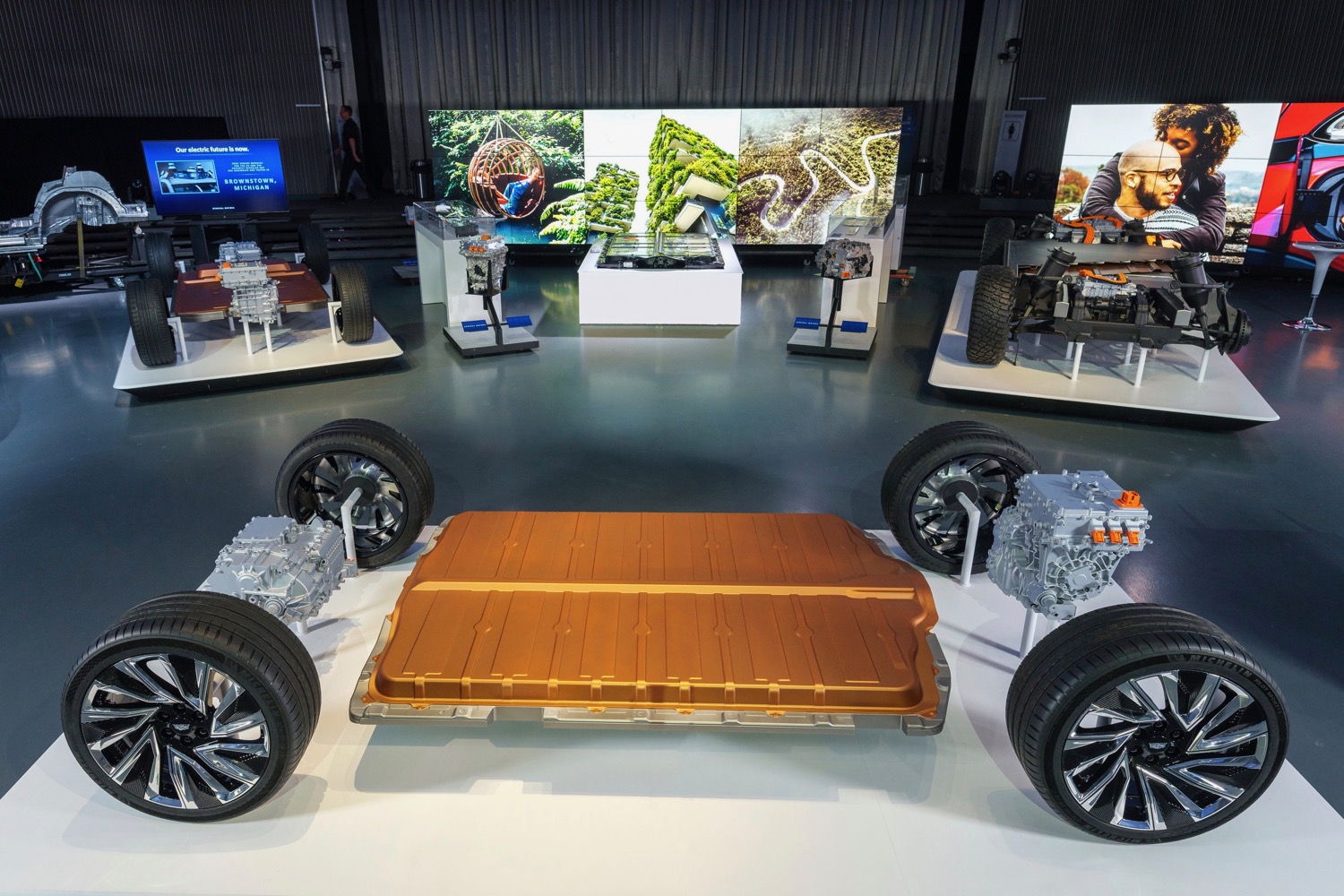
With the Chevrolet Bolt EV, General Motors proved that it could make a good electric car. But GM has failed to capitalize on the Bolt EV — until now.
GM just revealed Ultium, a package of mechanical components that will form the basis for a slew of upcoming electric cars. Ultium includes a basic vehicle platform, powertrain, and batteries, all designed to be modular in order to fit a wide variety of applications.
The batteries are designed to be stacked vertically or horizontally in order to fit different vehicle designs, according to GM. Configurations will range from 50 kilowatt-hours to 200 kWh, with a maximum range of 400 miles per charge and zero to 60 mph acceleration as low as 3.0 seconds, the automaker said. Batteries will be teamed with motors designed in-house for front-wheel drive, rear-wheel drive, all-wheel drive, and “performance all-wheel drive” applications, GM said.
GM expects the electric cars spawned by Ultium to be profitable, owing to economies of scale and production efficiencies. The automaker will continue to partner with LG Chem on batteries and expects costs to drop below $100 per kWh in the next few years. That’s the point at which industry analysts expect electric cars to achieve price parity with internal-combustion models.
New battery cells will also use a low-cobalt chemistry, GM said, addressing concerns over the material. Cobalt is a vital part of current lithium-ion battery cell chemistry, but it’s mainly mined in countries with poor human rights records. Increased demand has also led to concerns about price hikes, which would make electric cars more expensive.
The ability of Ultium to support a wide variety of vehicles, as well as reduce manufacturing complexity, will also save costs, GM believes. The automaker is planning for 19 battery and drive unit configurations initially, compared to 550 configurations for its current portfolio of internal-combustion powertrains. A modular platform also means more vehicles are made from the same building blocks, further streamlining manufacturing. That’s why manufacturers like Volkswagen and the Renault Nissan Mitsubishi Alliance are adopting modular platforms for their upcoming electric cars.
GM won’t waste time rolling out its Ultium-based models. All four United States-market GM brands (Cadillac, Chevrolet, Buick, and GMC) will produce electric models this year.
Chevy will launch a new version of the Bolt EV in late 2020, followed by a Bolt EUV crossover in summer 2021. The Bolt EUV will be the first vehicle outside Cadillac to get the Super Cruise driver-assist system, which allows for limited hands-free driving on highways, GM confirmed. The automaker said it will add Super Cruise to 22 vehicles by 2023, including 10 next year.
The Cruise Origin self-driving car revealed in January will also be based on the Ultium platform, GM noted. Cadillac will unveil its first all-electric model — called Lyriq — in April. The GMC Hummer EV announced during Super Bowl LIV will have an Ultium powertrain, but will likely use a more traditional truck platform. That just leaves one model for Buick unaccounted for.


